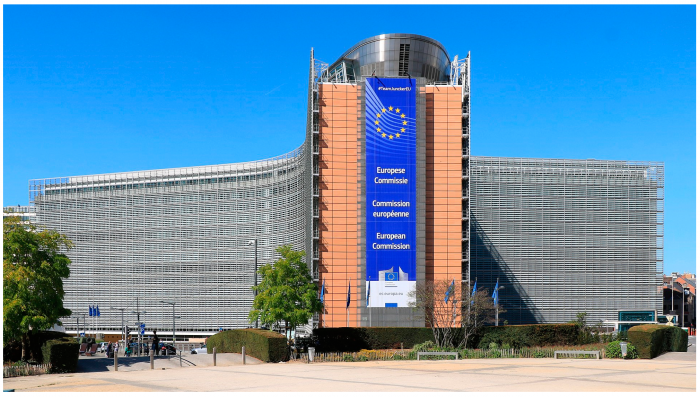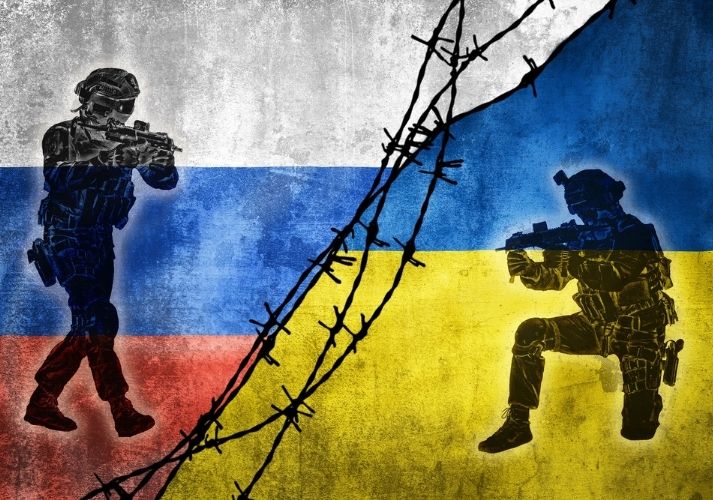The amorphous nature of the European Union is evident | News.az

Editor’s note: Teymur Atayev is an Azerbaijani publicist, historian, political scientist, and host of the program “Aspects of Foreign Affairs” on the Azerbaijani CBC TV channel (broadcasts in Russian). The article expresses the personal opinion of the author and may not coincide with the view of News.Az.
Donald Trump’s return to the Oval Office as president has once again highlighted the European Union’s lack of backbone. Regardless of whether some might disagree, the pace at which the Trump administration is taking foreign policy steps has left leading European politicians visibly overwhelmed.
There is no doubt that Trump’s iron grip on global affairs and his swift, decisive actions have shaken top EU officials, who had previously feared his comeback and openly hoped for Kamala Harris’s victory—some even subtly working toward that outcome.
Yet, it seems that neither European Commission President Ursula von der Leyen, German Chancellor Olaf Scholz, nor French President Emmanuel Macron expected such an aggressive geopolitical push from Trump. However, the U.S. president has done nothing unexpected—he has simply followed through on the campaign promises he made months ago. What stands out, though, is the stark contrast between his decisiveness and Europe’s continued political and economic feebleness, to the extent that even a semblance of leadership charisma appears to be fading among EU officials. This was epitomized by the tearful farewell speech of Christoph Heusgen, chairman of the Munich Security Conference.
While there may be various explanations for why Heusgen, who called the conference’s conclusion a “European nightmare,” was so emotional, the truth is that those tears symbolized weakness—a weakness that became the defining theme of the EU’s inability to present itself as a major global political force during the conference. This was particularly evident in the almost ephemeral, amorphous reaction of EU officials to the powerful speech delivered by U.S. Vice President J.D. Vance.
Against this backdrop, many analysts aligned with the “European perspective” as opposed to Trump’s stance had hoped that the EU leaders would at least show some sign of defiance—perhaps even figuratively “bang their fists on the table”—at the emergency meeting Macron hastily convened in Paris. That meeting ended yesterday. There were no tears. No visible lamentations. But also, no real substance in terms of Europe demonstrating any sort of decisive action.
Of course, it is possible that the participants chose not to publicize the agreements they reached. However, the fact that Macron personally called Trump both before and after the meeting speaks volumes. The information that has surfaced in the press indicates that the discussions in Paris revolved around Europe’s willingness to take on a greater role in providing security guarantees for Ukraine. But aside from NATO Secretary-General Mark Rutte’s vague statement about Europe’s intention to step up its efforts in this area, there was no real clarity on how exactly this would be achieved. The entire matter was reduced to general rhetoric about increasing investment “in our security and the clarity of our commitments.”

A similar pattern emerged in discussions over the widely debated proposal to deploy a peacekeeping mission to Ukraine. For instance, British Prime Minister Keir Starmer, who had previously stated that London was prepared to send British troops to Ukraine to provide security guarantees, emphasized that any such deployment would only happen after the end of hostilities. Sweden also expressed a willingness to consider the idea, but there has been no further progress beyond mere declarations. Meanwhile, Polish Prime Minister Donald Tusk had already ruled out sending Polish troops even before the Paris meeting took place. As for Olaf Scholz, he made it clear in Paris that only a joint Euro-Atlantic approach could “guarantee our security.”
In other words, despite all the criticism of the U.S. stance, European leaders today are exhibiting an unmistakable lack of confidence—precisely at a time when they should be demonstrating resolve and political will if they hope to assert their relevance on the global stage.

However, this trend does not seem to be the result of mere coincidence or a random confluence of events. Instead, it appears to be a historical pattern that has come to define “European behavior” in response to developments on the Russia-Ukraine front in recent years. After all, EU leaders themselves have led the way in the erratic, see-sawing approach to this crisis—one moment imposing new anti-Russian sanctions, the next delaying discussions on them; one moment supplying weapons to Kyiv, the next hesitating; one moment calling explosions in European waters terrorist attacks, the next suggesting they were merely accidents caused by the wind. And so on and so forth. According to some experts, this inconsistency has effectively exposed the “geopolitical inferiority” of these politicians and the nations they lead—including the European Union as a whole.
As a result, neither the Munich Security Conference nor the brief meeting in Paris has done anything to strengthen the EU’s political standing. If this amorphous approach to governance persists, the European Union risks losing its status as a serious geopolitical force, ceding its place to other global actors.
Related
A New Book Argues That What Happens in Europe Doesn’t…
Remaking the World: European Distinctiveness and the Transformation of Politics, Culture, and the Economy by Jerrold Seigel “No issue in world
Poland plans military training for every adult male amid growing…
Poland’s prime minister, Donald Tusk, has said his government is working on a plan to prepare large-scale military training for every adult male in response t
2025 European Athletics Indoor Championships: Ditaji Kambundji secures women’s 60m…
Switzerland’s Ditaji Kambundji walked away from the 2025 European Athletics Indoor Championships in Apeldoorn on 7 March with much more than her first Europea
Takeaways from the EU’s landmark security summit after Trump said…
BRUSSELS (AP) — European Union leaders are trumpeting their endorsement of a plan to free up hundreds of billions of








